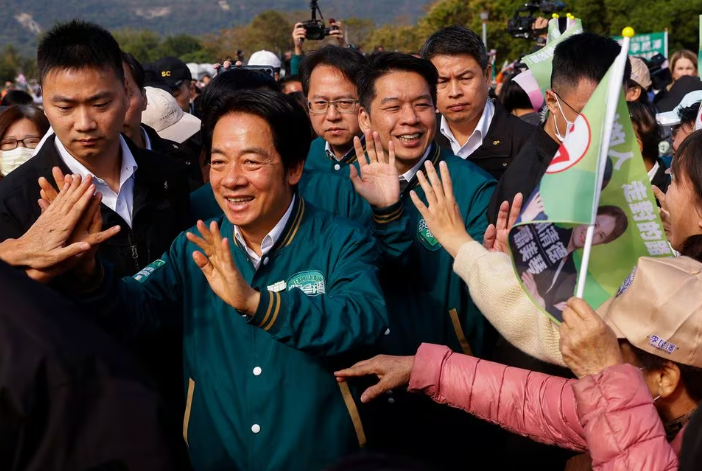BEIJING (Reuters), Dec 31 – China’s’reunification’ with Taiwan is inevitable. President Xi Jinping made this statement in his New Year address on Sunday. He used a stronger voice than he had last year, with just two weeks left before Taiwan elects a leader.
Beijing and Taipei are currently experiencing tense relations. The presidential and parliamentary election on Jan. 13 will take place at a difficult time. China has increased its military pressure in order to assert Taiwan’s democratically-governed sovereignty.
China has always considered Taiwan its “sacred land” and never renounced using force to take it under Chinese control. However, Xi did not mention military threats during his speech broadcast on state TV.
The official English translation published by Xinhua used a simpler phrase: “China is sure to be reunified”.
He added that “Compatriots from both sides of Taiwan Strait must share a common purpose and be united by a sense of purpose, so they can enjoy the glory of the revitalization of the Chinese nation.” In the official English translation, “all Chinese” was used instead of “compatriots”.
Last year, Xi only said that the people living on both sides of the strait were “members of the same family”, and that he hoped that they would work together “to jointly foster lasting prosperity for the Chinese nation”.
China is particularly offended by the current vice president Lai Ching-te who is leading opinion polls for Taiwan’s Democratic Party (DPP), and has been a candidate in presidential elections since 2008, with varying margins. They claim he represents a dangerous separatist.
China’s Taiwan Affairs Office responded late Saturday night to Lai’s comments made during a live, televised presidential discussion earlier that day. It said Lai “exposed his real face as a stubborn ‘worker for Taiwan Independence’ and destroyer across the Taiwan Strait”.
In a press release, Chen Binhua, spokesperson for the Chinese government said that “His words reflected a confrontational mindset.”
Chen stated that since 2016, when President Tsai-Ing-wen assumed office, the DPP government has been promoting separatism. It is also the “criminal genius” behind obstructing cross-strait exchanges and harming the interests of Taiwanese people.
He added, “As the current DPP Chairman and the leader of the DPP authorities, Lai Ching Te cannot escape his responsibility.”
Tsai & Lai offered to talk with China on numerous occasions, but were rebuffed.
Hou Yuih, the main opposition candidate from Taiwan’s largest party, the Kuomintang, also says that only Taiwanese people can decide the future of their country.
The KMT has always been in favor of close ties to China, but denies that it is pro-Beijing. Hou also denounced Lai for being an independent supporter.
After losing a civil conflict with Mao Zedong’s Communists, who founded the People’s Republic of China in 1949, the defeated Republic of China fled to Taiwan. Taiwan is officially known as the Republic of China.
Lai stated on Saturday that “the Republic of China” and the People’s Republic of China are not subordinates to one another. This is a phrase he, and Tsai had used in previous statements which also angered Beijing.
